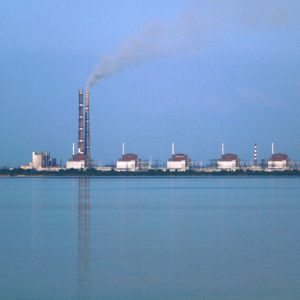Rather than focus primarily on government finance and regulating certain fuels out of existence, policymakers should pursue reforms rooted in free enterprise that raise peoples’ standards of living and mobilizes private investments in cleaner technologies.
Largest U.S. biofuels producer pledges carbon neutrality by 2050
"POET operates 33 facilities across eight states. At full run rates, it produces 3 billion gallons of ethanol, 14 billion pounds of distillers dried grains, and 975 million pounds of corn oil annually."
X-energy is leading the way in nuclear reactor, fuel design innovation
With the need for nuclear energy being so obvious in reducing emissions while providing reliable power to consumers, it is important to have entrepreneurs such as Clay Sell and his team at X-energy creating the innovations that are needed to power the world.
Chevron leads $318M investment round for carbon capture company Svante as sector booms
Lisa Stifler of GeekWire reports that Chevron has led a $318 million funding round for Svante. “Svante’s technology can also be used for ‘direct-air capture,’ which is pulling CO2 from the air that’s all around us — a trickier task than absorbing it from a concentrated source.” Read the full article here.
EVs Are the Lowest Climate Priority
Holman W. Jenkins argues on The Wall Street Journal that electric vehicles should be the lowest climate priority. “EVs are wonderful for many reasons but not for the reasons that climate-sanctimonious politicians promote. I won’t repeat an earlier column on climate policies that might actually be worth pursuing. Notice that the one innovation that greens opposed, fracking,...
We All Pay the Price for Protectionism
Phil Gramm and Donald J. Boudreaux write in The Wall Street Journal about the price of protectionism. “Protectionism and industrial policy misallocate resources and reduce economic efficiency. When firms in a free market produce outputs that consumers won’t buy, the money entrepreneurs and investors lose is their own. When protectionists and industrial-policy planners make mistakes,...
The Race to Develop the Next Generation of Aviation Fuel
As one of the most popular and safest forms of global transportation, aviation is essential to powering modern life. Air travel helps move goods around the world and empowers people to explore the world. With respect to other forms of transportation, aviation has a relatively small contribution to the world’s climate footprint —accounting for around...
California’s Rail Regulation Is Bad Economic and Environmental Policy
While reducing emissions is a laudable goal, the EPA should reject CARB’s waiver request and work with the industry on a more realistic approach to bring low-emissions technology to freight rail.
American Airlines Commits to the Future of Hydrogen-Powered Flight
American Airlines is charting a pathway for a cleaner aviation industry with the help of Zero Avia, a hydrogen-electric aircraft developer.
Ukraine’s Nuclear Power Stands Strong Under Attack
Despite the anti-nuclear rhetoric that has been peddled since its invasion, Ukraine’s nuclear industry has been able to safely and reliably keep the lights on and provide essential energy to counter Putin’s advances. That’s the definition of energy security.









